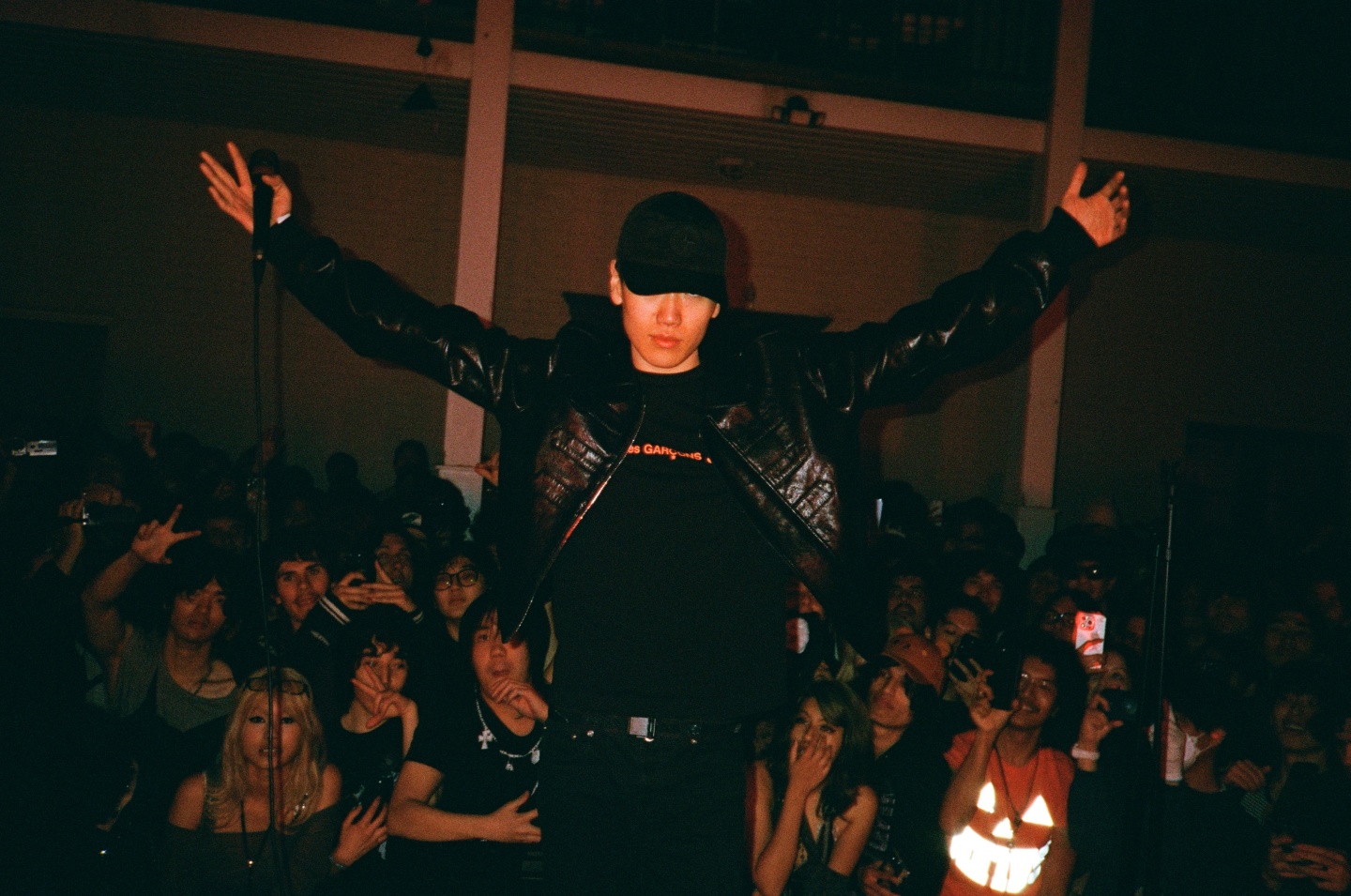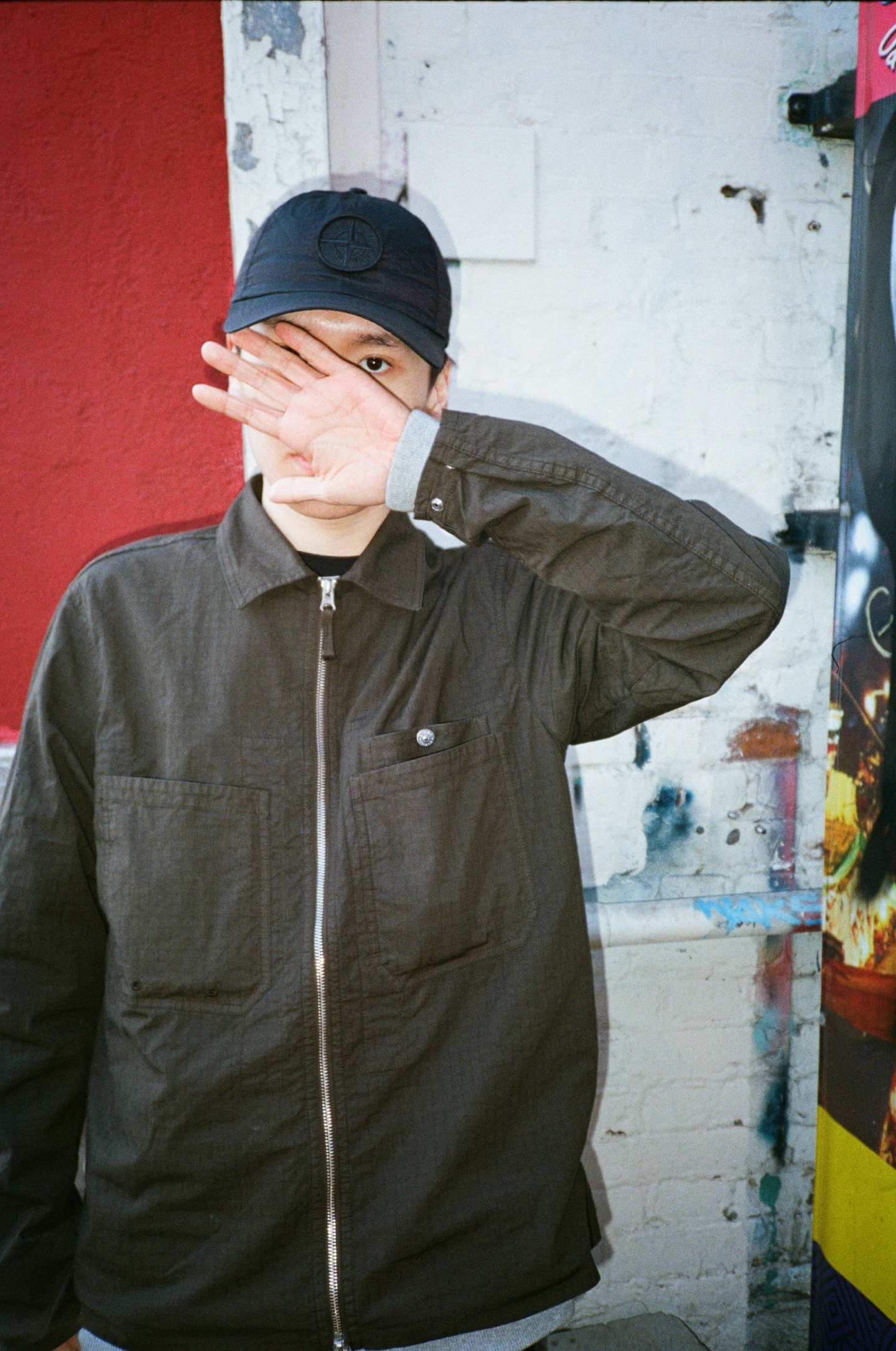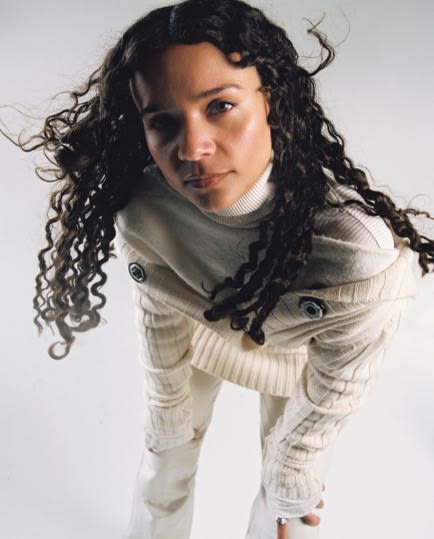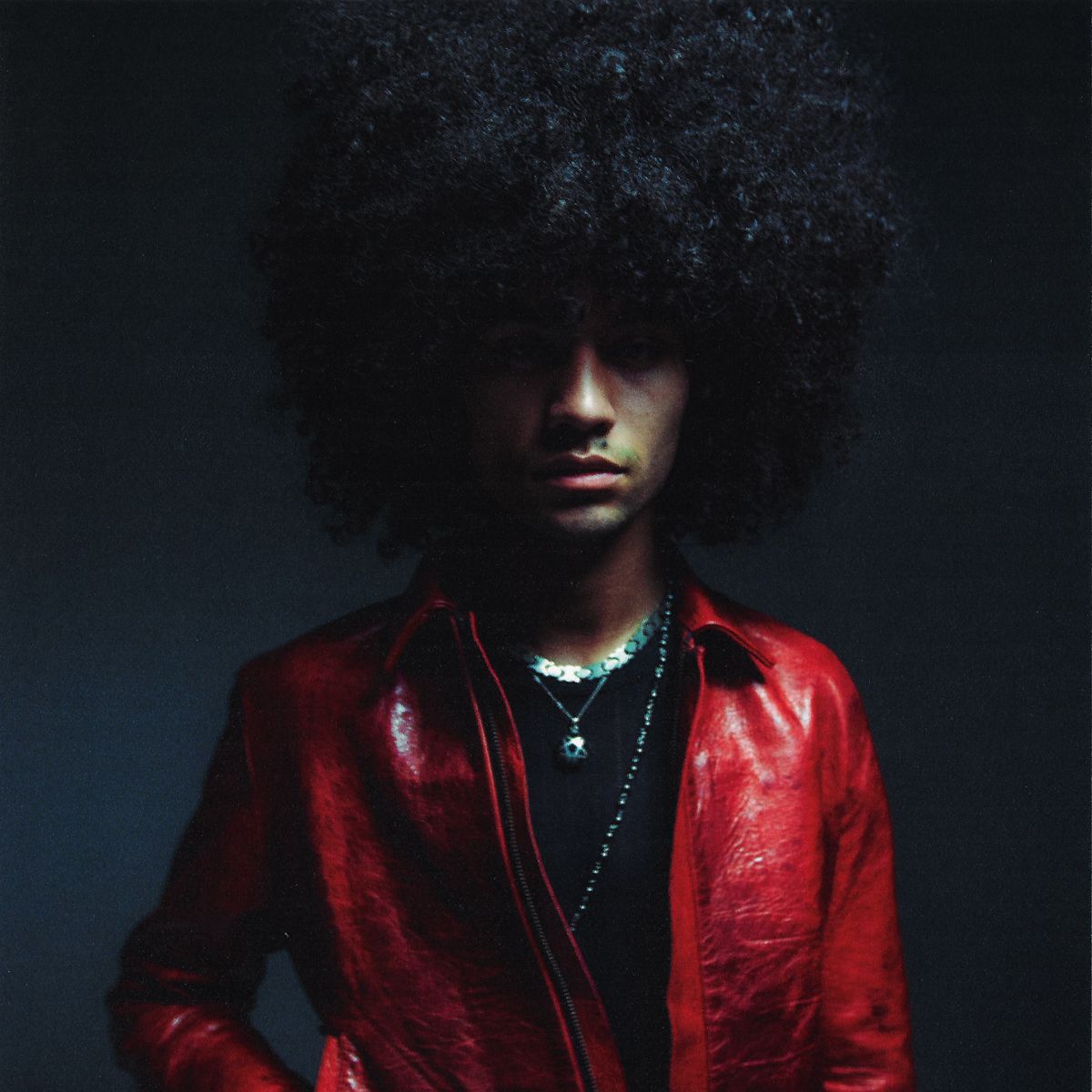The FADER’s longstanding GEN F series profiles the emerging artists you need to know right now.
On a Friday night in April, the hottest show in California is at the house of UCLA’s Sigma Pi Upsilon chapter. Teenagers with face piercings, ripped fishnets, and layers of studded belts slung over grommeted pants so baggy they pool at their feet are crowded in the backyard of the cavernous estate. They’re all here to watch Chengdu plugg-cloud rapper Jackzebra make his debut headlining performance on the West Coast.
Cigarettes dangle awkwardly from fingers as people drift toward the stage enjoying the opening lineup including Harto Falión of the N.Y.C. alt-rap collective Surf Gang and digicore savant Lucy Bedroque. But it’s clear who the star is. When Jackzebra finally appears — in a discreet black t-shirt and matching baseball hat, looking every part the “regular guy” he claims to be on his 2024 mixtape King of Kings — the kids loitering on the front lawn stomp out their cigs and rush the stage. The mosh pit is remobilized and the walls of the Sigma Pi vibrate with bass as Jackzebra, who only raps in Mandarin, sings “我永远的在操着你的妈” (“I’m always fucking your mom”) over and over again as he pogoes his body into the air.
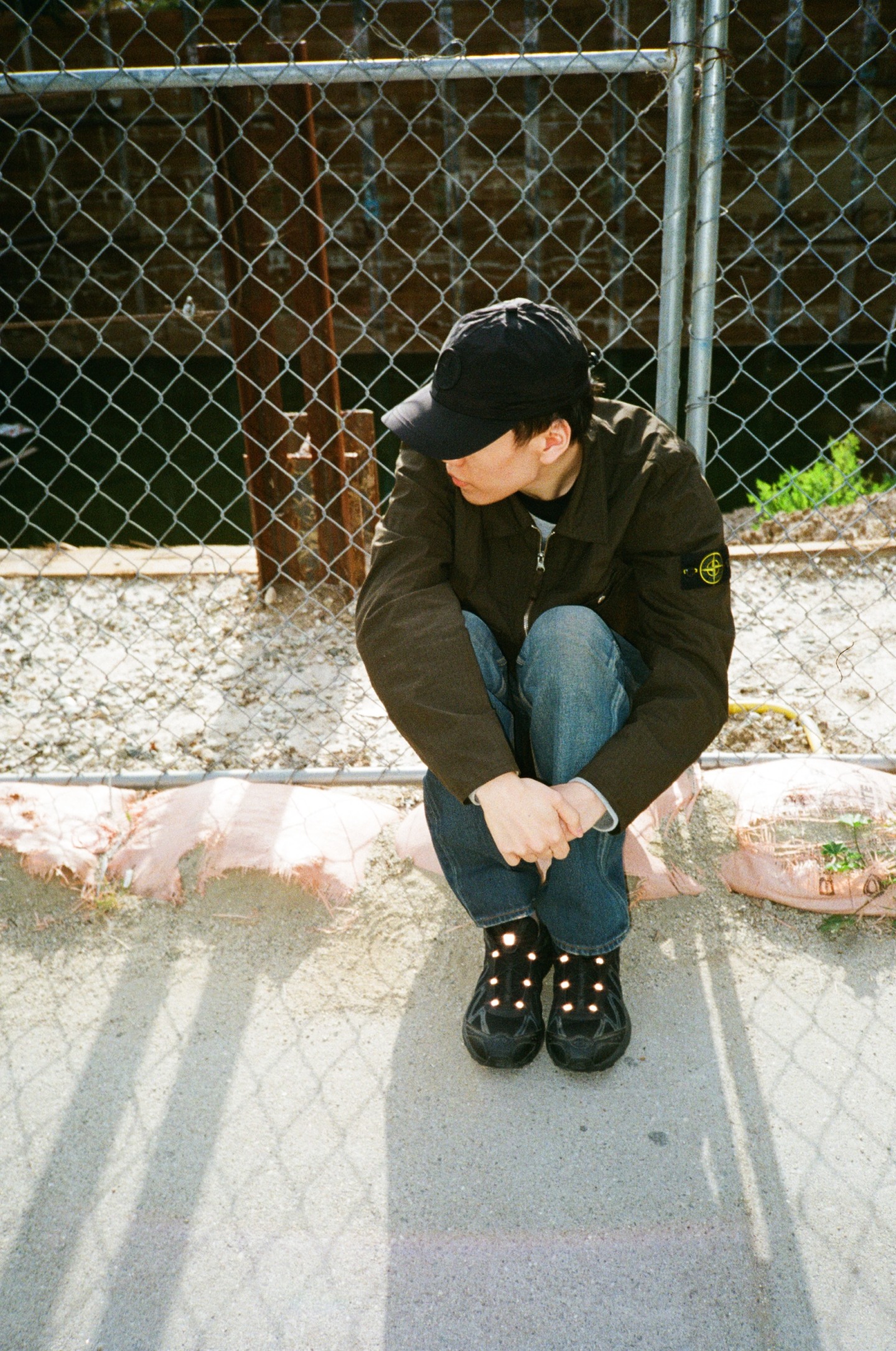
“I was very surprised because it was my first time performing in [Los Angeles],” the 25-year-old Jackzebra tells me of the reception the next day. It turns out, it was also his first time in an American fraternity house. “I did not expect that crowd. I was hype. It was crazy.” He says the Western crowds he’s performed for are different from his fans in China, who he describes as “more shy.”
Over the last year or so, Jackzebra, whose real name is Zhang Zheng Kai, has experienced an organic groundswell of popularity as his SoundCloud mixes and songs of zealously Auto-Tuned slurring interlaced with atmospheric soundscapes that further distort lyrical meaning have gone viral on Reddit, the Chinese microblogging platform Weibo, and across emo-rap communities online. Even Mandarin speakers have trouble understanding Jackzebra, but his music has transcended the need for translation for both his fans who are native Chinese speakers and those who don’t understand a single word.
Falion’s appearance on the bill wasn’t a coincidence: Earlier this year, Zheng Kai secretly signed to Surf Gang, a fitting home for his restless sound. “I was just stunned,” Surf Gang’s co-founder evilgiane says of hearing Jackzebra’s music for the first time. “One minute, it’s rap music, but then there’s also indie-sounding stuff, and a bit of electronic stuff in there. He’s always keeping people on the edge with what he’s gonna release.”
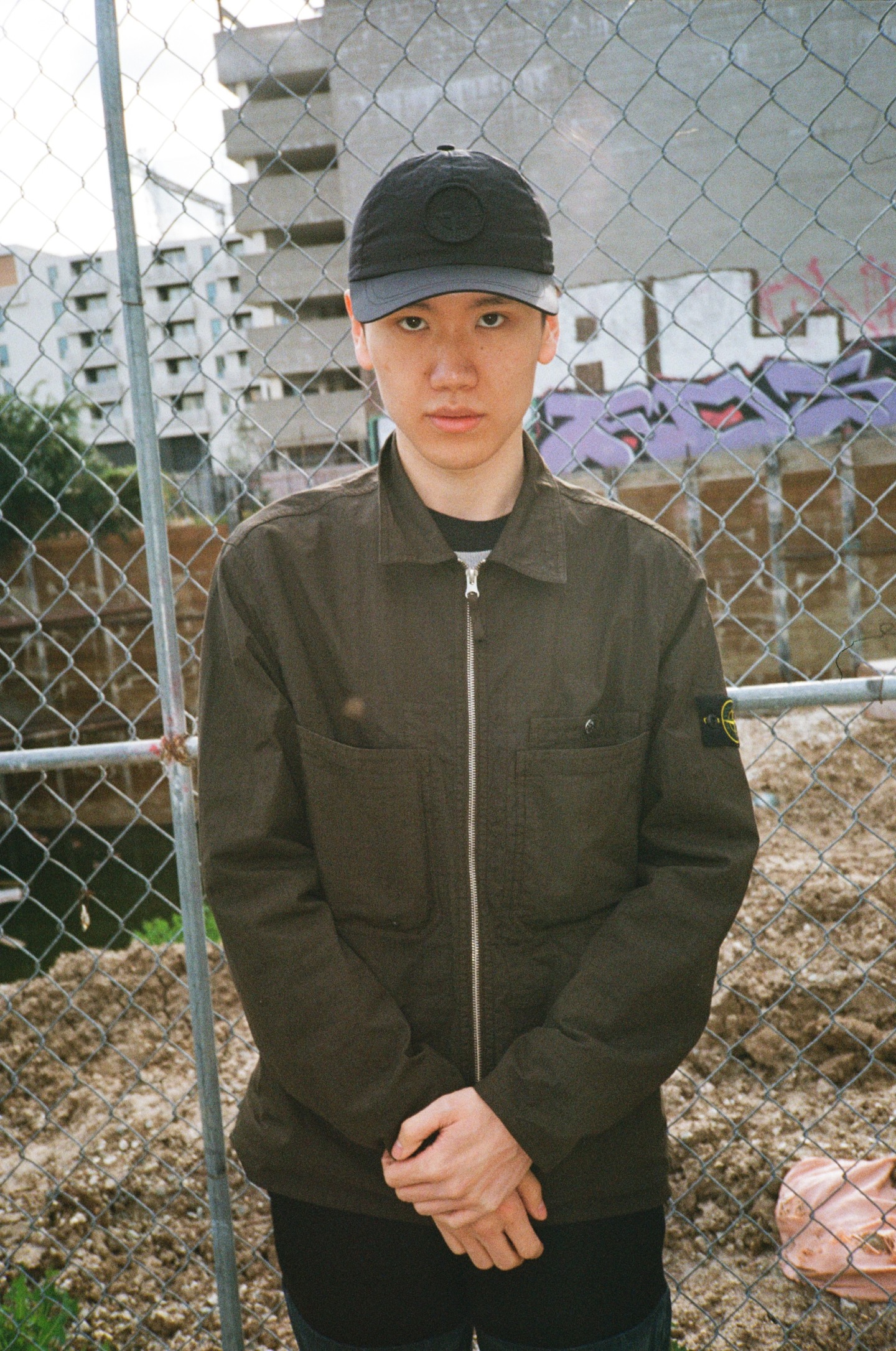
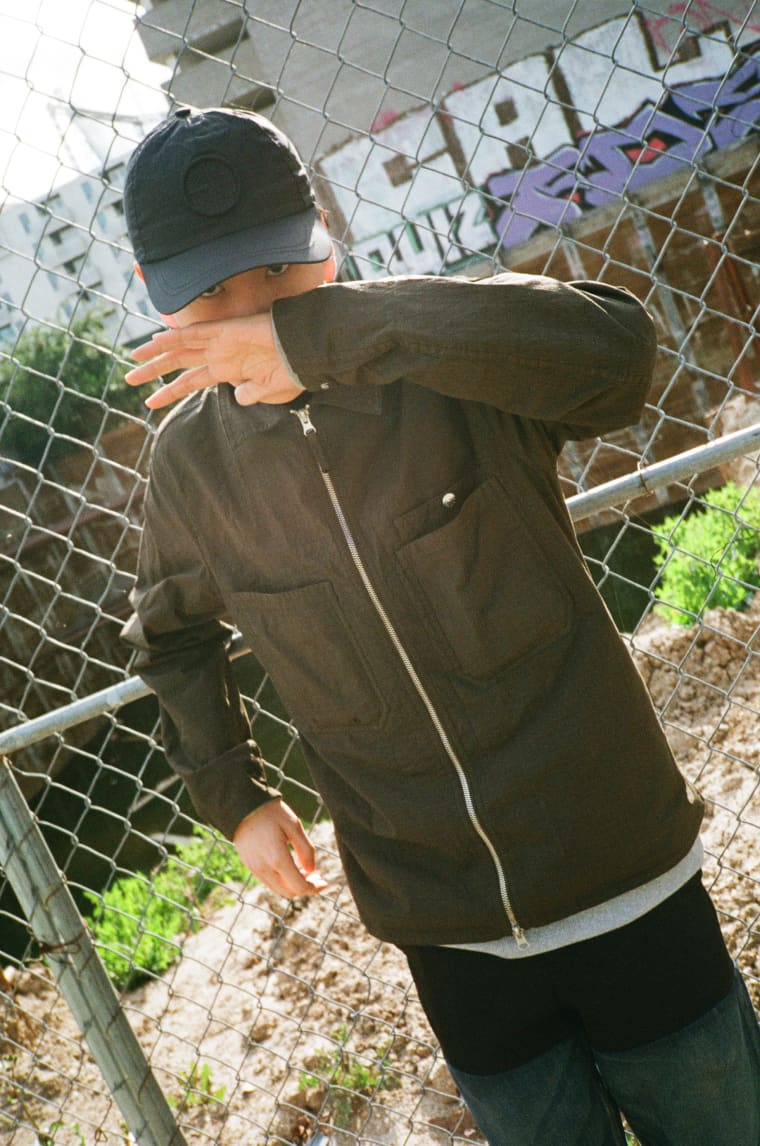
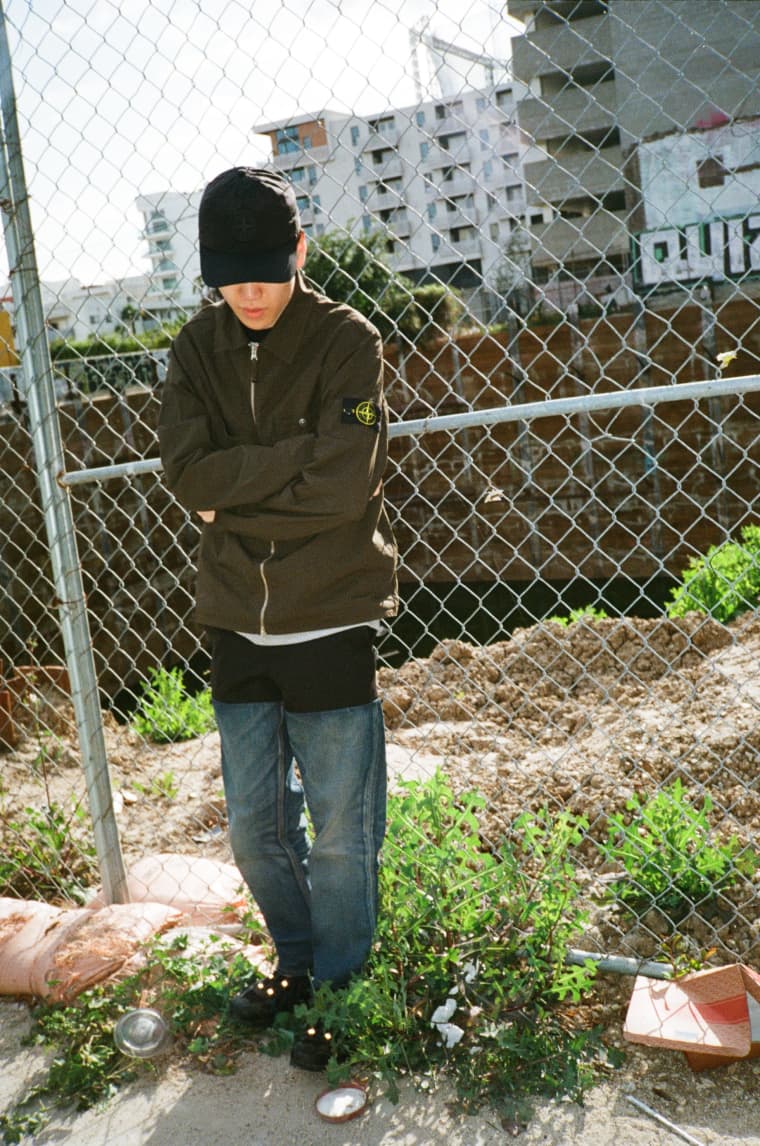
Today, Zheng Kai has asked me to meet him at an H Mart in Koreatown near where he’s staying in L.A. as he records tracks for his next project with evilgiane. Zheng Kai shows up in a uniform similar to the one he wore onstage, but the floppy exuberance he embodied is now gone. He sits with a rounded back, his hands stuffed into his pockets. At some point, I give up on making any meaningful eye contact.
This observation should surprise no one who’s gone out of the way to understand his lyrics. In his music, Zheng Kai depicts himself as a quiet loner, someone whose bombastic declarations (“I am the king / the king among kings / arrogant and reckless / boundless and crazy”) are written more like manifestations than statements of fact. In reality, Zheng Kai lives deeply in his head and, of course, the internet. “I don’t have many friends in real life,” he tells me. “I just have online friends” — and his girlfriend, now fiancée, an artist known as hpsb who’s a regular feature on his Instagram and some of his tracks.
“I was just stunned. One minute, it’s rap music, but then there’s also indie-sounding stuff, and a bit of electronic stuff in there. He’s always keeping people on the edge with what he’s gonna release.” — evilgiane

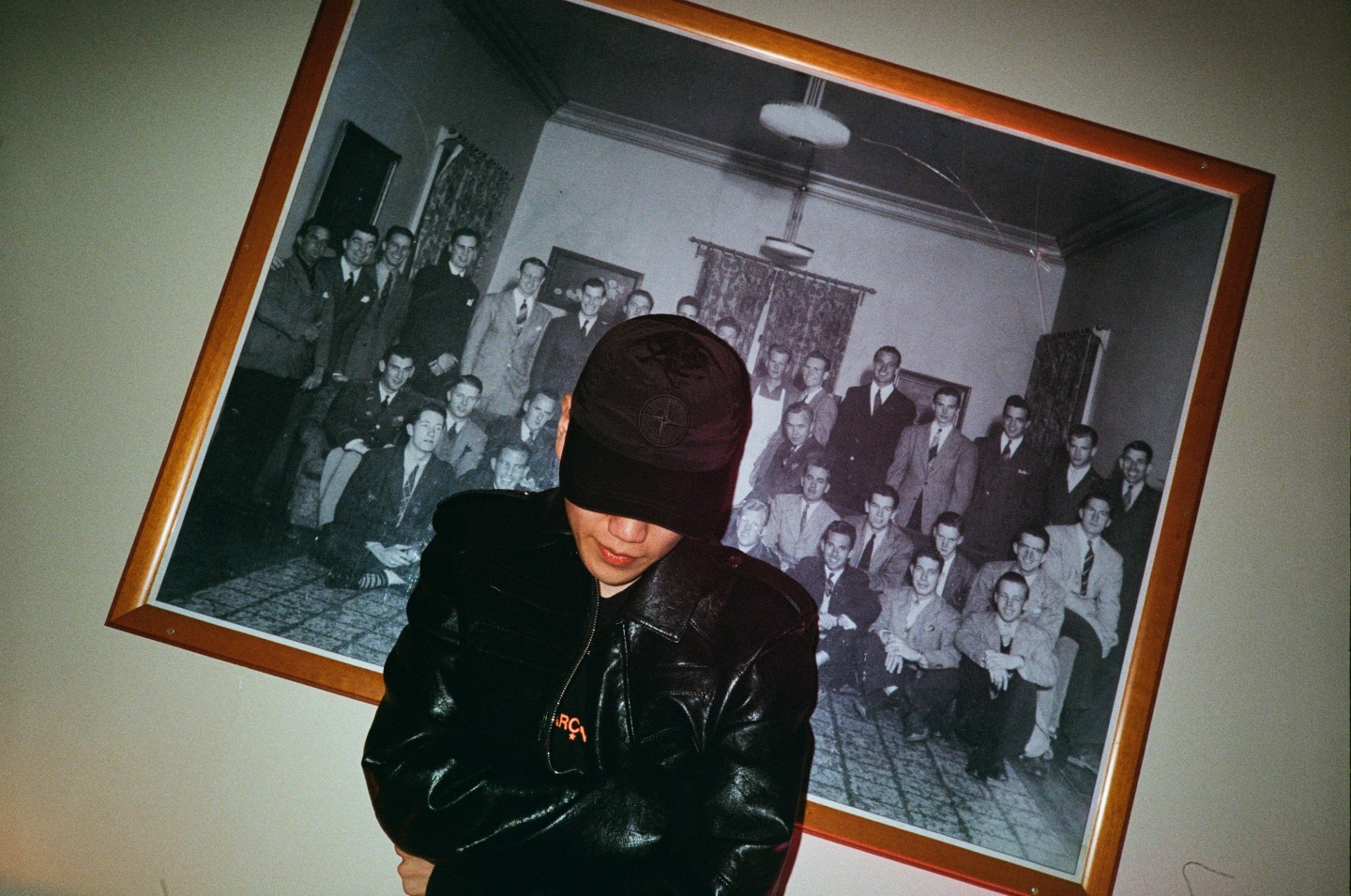
Zheng Kai has known since he was 17 that he wanted to make music — and that he’d be good at it. “I didn’t like studying,” he says. “I’ve always just wanted to create something, to be an artist or singer.” Growing up on a diet of Billboard-charting hits, his favorite musicians include Coldplay, Imagine Dragons, and M.I.A.; he wants to work with Justin Bieber someday. These tastes diverge radically from the kind of music he’s making now, genres he encountered not on the charts but on Weibo, which he checks every day, and SoundCloud. “I loved the beats and the visuals,” he says about discovering rap music. “I remember, when I was young, [I loved] watching A$AP Rocky videos.”
In 2018, after watching YouTube videos, he set up his own bedroom studio where he still makes beats today. His earliest songs — which were actually freestyled in English — caught the attention of Bloodz Boi, a pioneer of the Chinese cloud rap scene who took him under his tutelage and invited him to perform live for the first time in Guangzhou in 2019. (“I was wearing stupid sunglasses and a stupid hat.”) Soon after, American producers started to DM him over Instagram, “Hey, Jack, do you want some beats?”
“I loved the beats and the visuals. I remember, when I was young, [I loved] watching A$AP Rocky videos.”
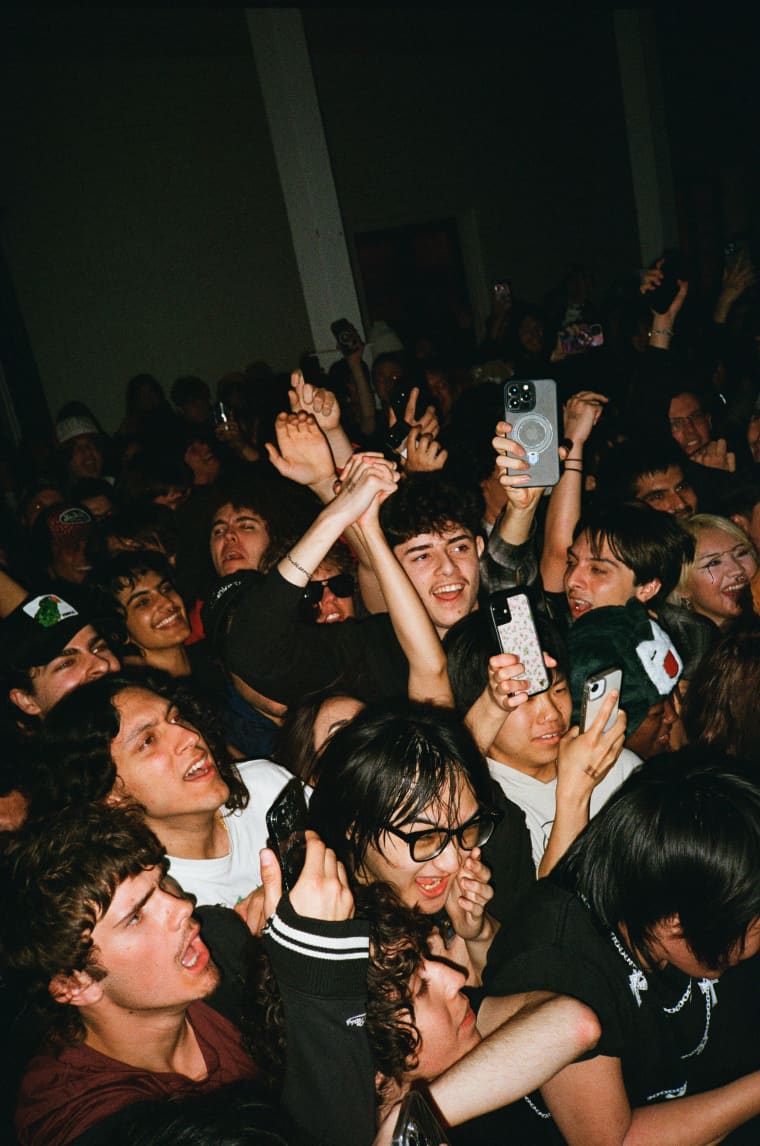
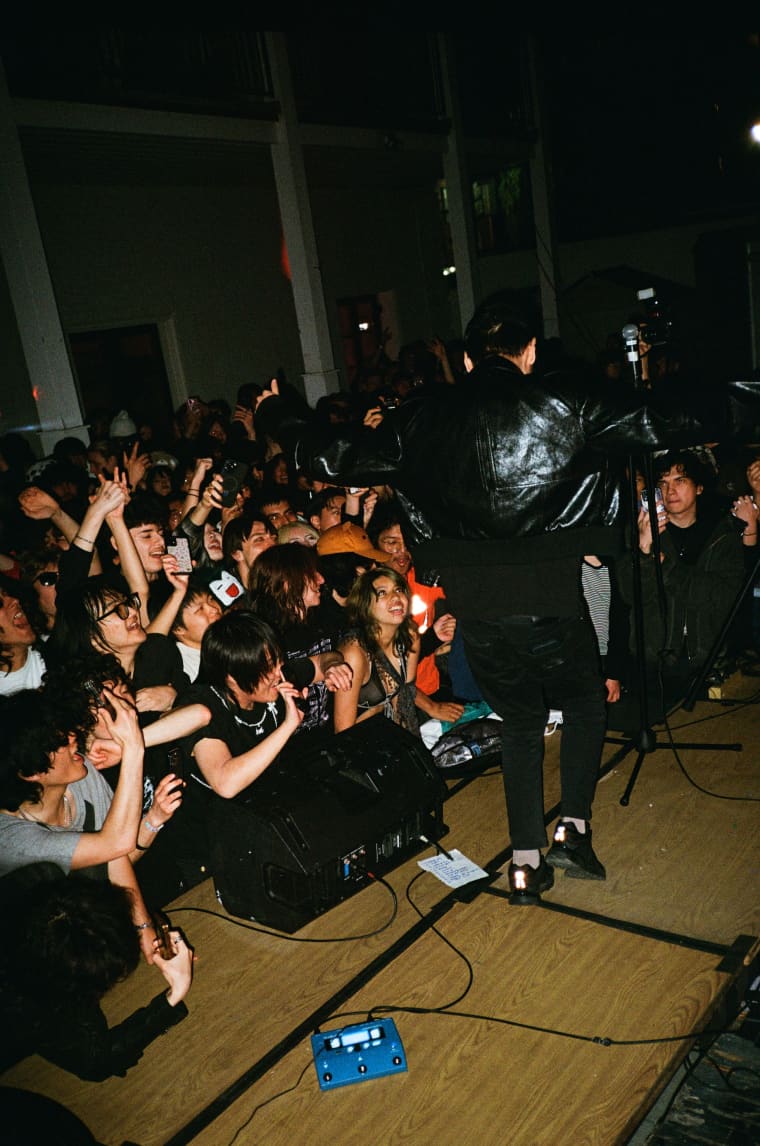
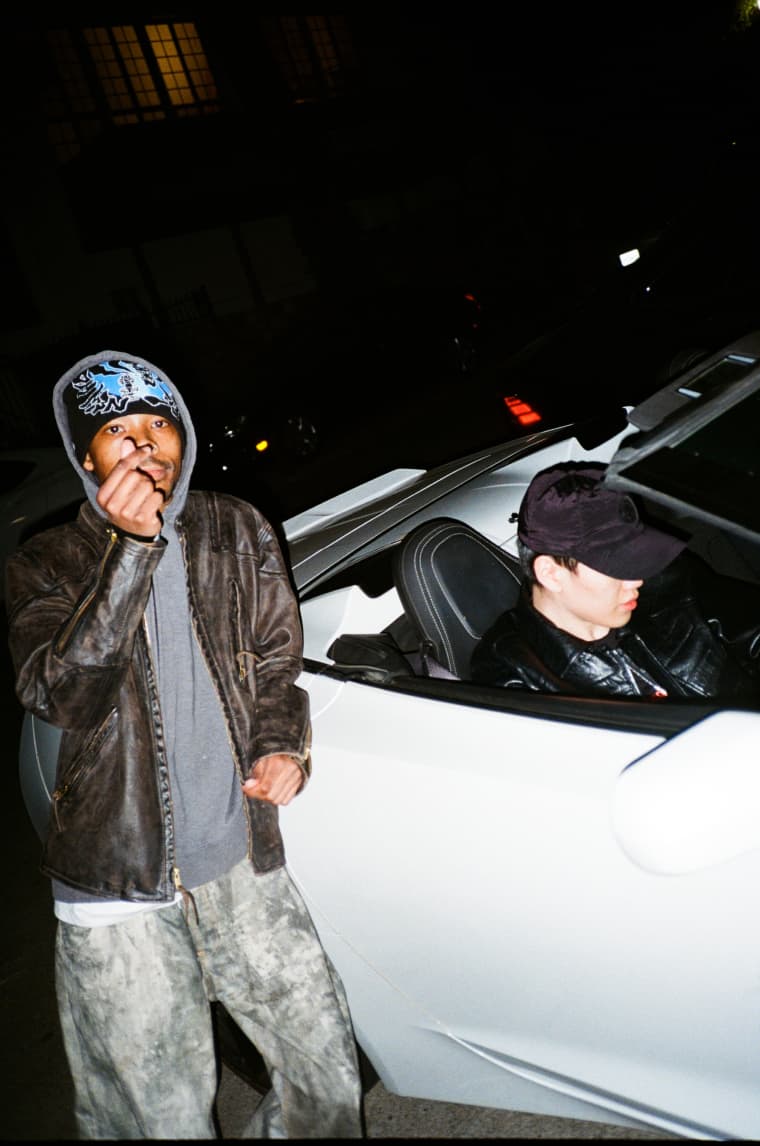
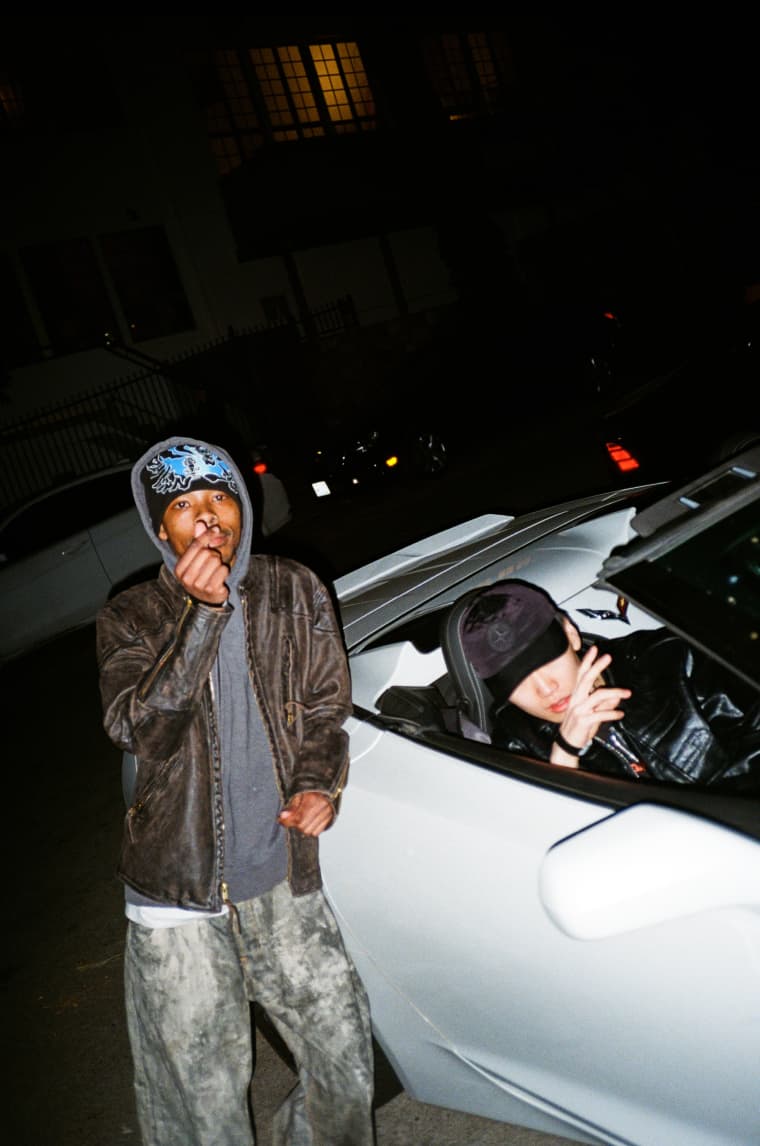
Despite their unintelligibility, Zheng Kai’s lyrics are heavy in meaning. On his latest release, a 34-track mixtape titled Above & Beyond, he writes of Gen Z ennui and urban alienation switching between being hypercritical of himself and audaciously confident. “I don’t know when I started to become fearful of other people/ I don’t know why my mind goes blank when I close my eyes,” Zheng Kai admits on “无病呻吟.”
He switched to Mandarin after finding English to be too rigid a language. “Mandarin [can have] many different meanings, just in one sentence. Mandarin is magic,” he says, saying that the language has helped him express himself more meaningfully, to talk about what he calls, “deep stuff.” “It’s like therapy. My lyrics support me.” And despite the language barrier, they support a growing fanbase online and off.
“Did you know it would be like this?” I ask, referencing the screaming fans, the wild moshing.
“Yes,” he says. “I guess so.”
